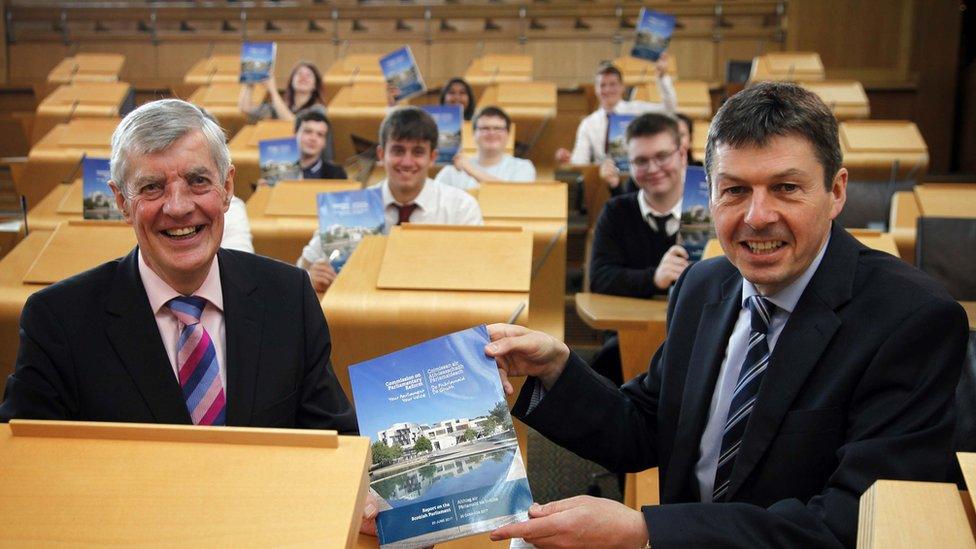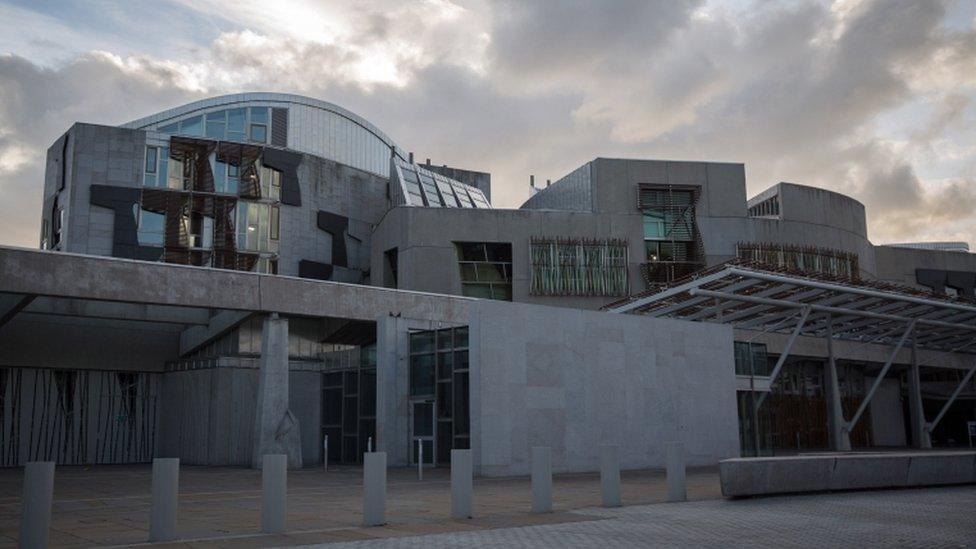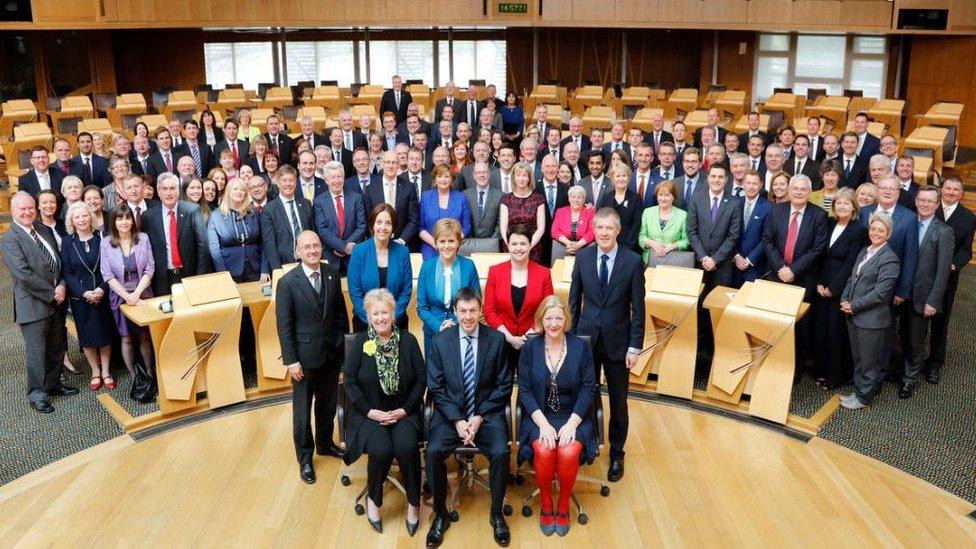Reforms for 'reducing waffle' at Holyrood
- Published

Commission chairman John McCormick (left) launched the report alongside presiding officer Ken Macintosh (left)
There is a scene in the film "Blazing Saddles" where the townsfolk are discussing a threat to their tiny settlement in the American West.
In keeping with the painfully satirical tone of the movie, one contribution - which consists of an inaudible and incomprehensible rant - is characterised and praised as "authentic frontier gibberish".
Now, from this, let me tiptoe ever so gently - ever so gently - into the discourse which occasionally passes for debate at Holyrood. And the report on parliamentary procedures, published today.
For the avoidance of any doubt, I am not remotely accusing our elected tribunes of indulging in frontier gibberish, authentic or otherwise. At least, not all that frequently.
But it can sometimes be the case that something which appears bizarre to the wider world can assume totemic status in a relatively-closed society.
'Effective scrutiny'
Today's report turns a bright spotlight onto Holyrood's habits. It does so from a standpoint which makes no apology whatsoever for standing up for the rights and requirements of the electorate, rather than the elected.
Talking, for example, of parliamentary exchanges, it says that the presiding officer "should have a stronger role in balancing the need for political debate with that of effective scrutiny." In short, more focused discussion, less political grandstanding.
Helpfully, the report goes on to list ways in which that broader objective might be achieved. These include "ruling out responding to questions with questions (other than for clarification)".

The commission was set up to give Holyrood "an MOT"
Heavens, how will our MSPs survive? Turn to the Practical Guide to Politics, Chapter Three, sub-clause seven, and you will find the following: "If you are really up against it, turn a question round by demanding that your opponent must first answer for her manifesto and how it would wreck the economy / the country / the climate."
Then today's report says that the PO should rule out "those questions which do other than seek to genuinely scrutinise the minister".
What can they mean? Is it being suggested that questioners sometimes try to punt their own electoral prospects in the guise of a scrutiny question? Say it isn't so.
Then there is a further stated objective. That of "reducing waffle". Well, at least that should assist with another declared aim - that of "shorter statements".
Ach, enough, Brian, enough. Today's report makes clear that Holyrood has been a success. It is "a mature institution, supported wholeheartedly by the public".
Pragmatic and sensible
It works - and, according to John McCormick, who chaired the review - our elected MSPs work very hard indeed, round the clock, round the calendar.
The review suggests more than 70 practical reforms, including changes to the role and structure of committees. The entire approach is pragmatic and sensible.
Part of the inspiration for the initiative was the knowledge that Holyrood is gaining new responsibilities and can be expected to experience a bigger workload as a consequence. How would the system cope?
Intriguingly, the McCormick review is against expanding the number of MSPs or setting up a second chamber. It argues that, before such a move is contemplated, it is vital to ensure that the existing set-up is working to maximum efficiency.
Today's report is a deft blend of parliamentary insight and concern for the populace. There is an evident familiarity with the workings of Holyrood but the suggestions for change are firmly based upon evidence, derived from umpteen meetings and chats around Scotland.
John McCormick, formerly of the BBC and the Electoral Commission, told me of one such example which inspired him to argue for even better engagement between politicians and people.
He was speaking to one man in an area, in a social stratum, commonly characterised in our political discourse as "hard to reach".
Mr McCormick's interlocutor wryly observed that, no, they were not at all hard to reach. Just easy to ignore.
- Published20 June 2017

- Published24 April 2017
